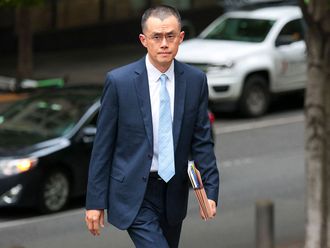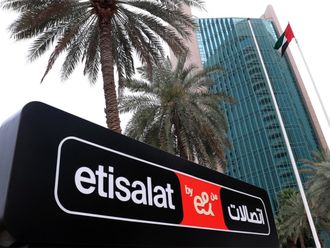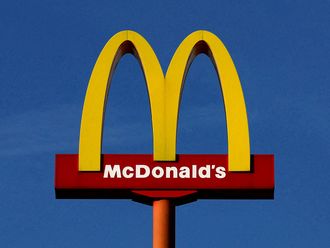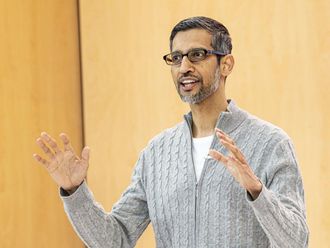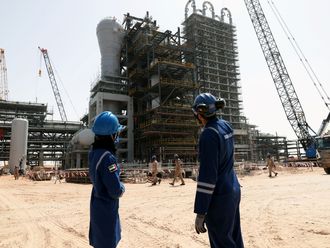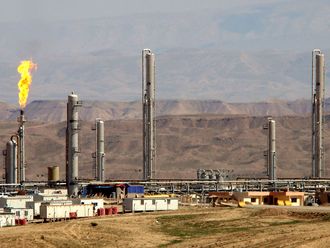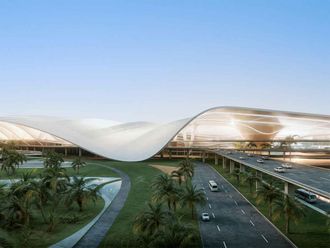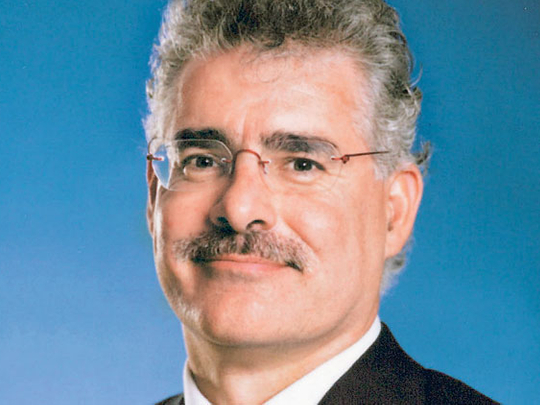
Dubai: With apologies to Sting and his Englishman in New York; the notes below come from an Aussie in Dubai.
John Goodlad, stockbroker with Hartley's in Perth, is a much-travelled broker who likes to kick the tyres of the vehicles he selects for his portfolio. His notes on Dubai are therefore those of an external lens on the Dubai economic landscape.
In recent months that external lens has been largely focused on negative issues such as debt re-structuring. However, at a time when Standard Chartered announces a preference for their head office to be in Dubai rather than London; and with hotel rates getting back off the "bargain basement" price floor; Goodlad's external lens provides something of a positive glint.
I take the "positive" from one facet an explanation as to the shape of the Dubai economic model. To be honest, I have been throwing out "I don't know's" to questions during the boom like: "When will Dubai stop growing, or what is Dubai's business plan?" During the construction downturn, the questions have become: "When will Dubai recover, or is the economy at a standstill, or is it growing?" Upturn or downturn, the answer has been, "I don't know."
Comparisons
Goodlad's notes therefore provide an element of insight. First up: "all domestic recessions have bottoms", says Goodlad, continuing: "I have seen a monetary crisis at first hand in Indonesia and there are some comparisons. In Indonesia, the entire export and financial sector collapsed prompting significant intervention to refloat the economy. What was noteworthy was that we all underestimated the resilience of the domestic economy. Put simply the economy plummeted but reached a solid floor when the local continues to consume what they had become used to. In Indonesia's case this meant things like motorcycles, mobile phones and meat as against the old staples of buses, kerosene and rice".
Whilst Indonesia has the advantage of consumer numbers, Dubai has the advantage of the support of the UAE government.
Yet the pertinent point is that all recessions have bottoms, and the current supporting structures to Dubai are looking fairly promising, as Goodlad says: "Dubai's domestic economy obviously depends on tourism, transport and logistics, and if it can secure its financial situation as part of the UAE, the construction sector may recover sooner rather than later and this makes this Australian investor think of its great construction group and prominent local player Leighton Holdings. [Remember Goodlad is a stockbroker!!]. Additionally, I understand that hotels were 80 per cent occupied and Emirates airline with its innovative second cities strategy throughout Europe and ‘Menasa' [Middle East, North Africa and South Asia] ensures that Dubai's role as a true entrepot city continues".
Therein lies the gem of an insight: "Dubai the entrepot centre". In a globalised business model, Dubai's geographical position, and its transport and logistical strengths really do provide its gold dust.
Secondly, Goodlad points to the development and government commitment to infrastructure. "The rate of change in Dubai is still phenomenal and just may be taken for granted by you locals. I was in town in February 2010. The train was not there last year and I shocked most expats I know by having bought a ticket and taken the train back from a business appointment in Bur Dubai."
Appetite for change
"‘What's it like?' they all ask. Buying a ticket on public transport is often the most stressful thing that a traveller can do and this was the least stressful experience I have ever experienced! In terms of what I could see, there were also significant changes: unlike last year the Palm development was lit up and occupied. Atlantis is a knockout — and the world's tallest structure is truly amazing. It will be even better when the lifts finally work."
Finally, Goodlad notes the efforts of Abu Dhabi in terms of UAE brand-building, which would also, naturally, have a positive effect on Dubai. Goodlad says: "the region's energy wealth of course leads to Abu Dhabi. And this emirate looks set for a remarkable future. Abu Dhabi's record of sound financial management and its status as capital of the UAE [and the source of capital too!!] along with Etihad and the tourism that will surely come, is all fairly positive. The Guggenheim and Louvre initiative will certainly make this an essential destination for tourists to the region for decades to come."
I point out that Goodlad is perhaps excited because he lives in the middle of nowhere, i.e. Perth, against which even Timbuktu has its positives. To which he responds: "At least Perth is well serviced by Emirates airline, but it is of course much quieter than Dubai. The locals tend to fight development of any kind in their fair city; most shops still closing at 6pm and no shopping on Sundays; people certainly do not come to us for their shopping!!! But there are comparisons that can be made in terms of WA's [Western Australia] enormous resource development. WA billionaire Andrew Forrest's Fortescue Metals Group (FMG) rivals that of Dubai in term of speed and wealth creation."
Goodlad concludes by stating that one of his broker friends noted that it took 18 months for his house to be renovated in Perth. In the same period Forrest's mines went from dirt to production to the point where it is now Australia's third largest iron ore producer after Rio Tinto and BHP. Ironically, much of the finished product in terms of steel can be seen by any traveller in Dubai.
The writer is chairman of Mondial Financial Partners International


